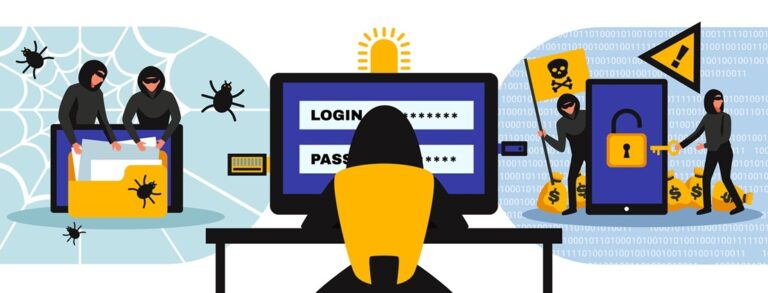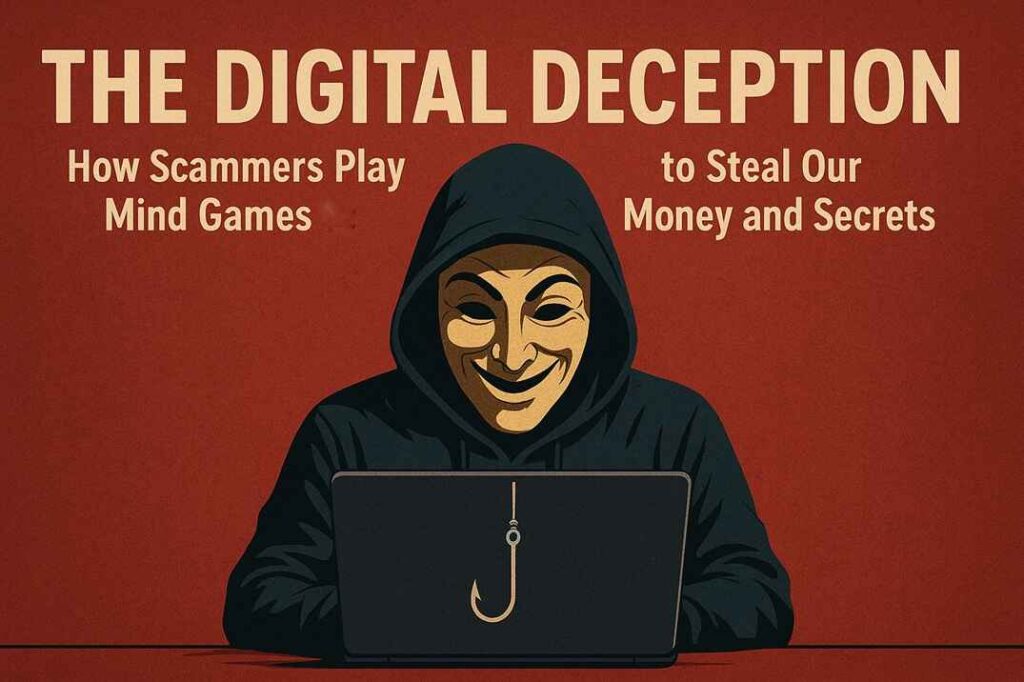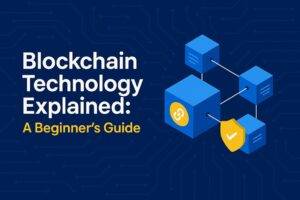The Digital Deception
How Scammers Play Mind Games to Steal Our Money and Secrets
Unmasking the Invisible Threat Online
Online scams are a constant in our bustling digital lives, filling our messages and notifications. Many of these seem harmless, but some hide a cunning danger. We’ll explore how these seemingly normal messages can be carefully crafted traps designed to ensnare us.
Table of Contents
This isn’t about complicated computer code or mysterious viruses. It’s about understanding a more subtle, yet powerful tool: human psychology. Scammers don’t hack computers; they hack us by exploiting our emotions, trust, and even our fears. Think of them as digital illusionists.
By the end, we’ll gain a clear understanding of these deceptive tactics. We’ll learn to recognize their “mind games” and build a stronger defense for ourselves and our loved ones, empowering us to navigate the digital world with confidence. Understanding online scams is our first step to digital safety.

The Scammer's Master Plan: Playing with Our Feelings
Scammers have a playbook filled with clever tricks. They’ve learned to manipulate our strongest feelings to get what they want. Let’s look at their favorite online scam tactics.
The “Panic Now!” Button: Understanding Phishing and Imposter Scams
- Their Trick: These online scams create a sudden, fake emergency that makes us feel we must act immediately, without thinking. They often pretend to be trusted names like our bank, the government, a familiar company, or even a friend in distress. This common trick is often called phishing, where they “fish” for our information. Scammers frequently pose as significant figures or entities, a tactic commonly known as an imposter scam.
- How it Works on Us: This tactic exploits our fear of losing money, facing legal trouble, or missing out. When we’re panicked, our natural caution often disappears, making us rush into their trap. These types of online scams thrives on urgency
The “Dream Come True” Lure: Unmasking Investment Scams
- Their Trick: They offer something unbelievably good – a huge prize, a secret investment promising instant riches, or an unexpected fortune. It sounds too perfect to be true. Often, these schemes involve investment fraud, luring individuals with promises of substantial profits for minimal risk. These are clear examples of sophisticated online scams targeting our financial hopes
- How it Works on Us: They play on our hopes and dreams for an easier, wealthier life. The excitement of a big win or quick money can blind us to the obvious signs of a trick.
The The “Friend in Need” Deception: Decoding Romance and Honeytrap Schemes.
- Their Trick: They build strong emotional bonds online, sometimes over weeks or months, pretending to be a perfect friend or partner. Once trust is established, a “crisis” suddenly appears, and they need money from us. This is typically a romance scam. A honey trap specifically involves manipulating us into sharing private information or photos that can later be used for blackmail.
- How it Works on Us: They prey on our desire for connection, friendship, or love, turning our empathy and trust into a tool for financial exploitation or coercion.
The “Pity Play”: Exploiting Our Kindness
- Their Trick: They appeal directly to our kind and compassionate side, often pretending to be a charity, a friend facing a dire emergency, or someone in desperate need. This is another common form of online scamming.
- How it Works on Us: They leverage our willingness to help others, especially during emotional times or after a major event, turning our good intentions against us.



Our Digital Armor: Simple Ways to Spot a Scam
Protecting ourselves online doesn’t require complicated tech knowledge. It’s about sharpening our observation skills and remembering a few key signs to identify online scams. Uninvited Messages Mean Extra Caution
- What to Look For: If a message or call comes out of nowhere, especially about something important like our bank account or a package delivery we didn’t expect, we should hit the pause button. Many online scams start this way.
The “Pressure Cooker” Warning
- What to Look For: If anyone tells us to “act now or face consequences” or pushes us to make a quick decision, it’s a huge red flag. Real organizations give us time to think and verify. This is a classic sign of an online scam.
Guarding Our Money and Secrets
- What to Look For: We should be extremely wary if we’re unexpectedly asked for passwords, bank details, or to send money in unusual ways (like gift cards, cryptocurrency, or wire transfers). Legitimate businesses have secure ways to handle these things. These are common requests in online scams.
If It Sounds Too Good to Be True…
- What to Look For: Our common sense is a powerful tool. If an offer or prize seems unbelievably amazing – a lottery we never entered, an investment guaranteeing impossible returns – it’s almost certainly a trick. Many online scams entice us with unrealistic promises
Spotting the Little Mistakes
- What to Look For: Scammers often make small errors.
- Bad Spelling or Grammar: Official messages usually have very few, if any, mistakes. This can be a subtle sign of an online scam.
- Strange Links: Before clicking any link, we can hover our mouse over it (on a computer) or long-press it (on a phone) to see the real web address. If it looks odd or doesn’t match the company’s name, don’t click! Such links are common in online scams.
Our Golden Rule: Always Double-Check
- How to Do It: If anything feels suspicious, the safest thing is to contact the company or person directly. It’s absolutely vital to confirm any contact details or web addresses by finding them yourself through a trusted, independent source, rather than relying on information from the suspicious communication. This vigilance is key to avoiding online scams.

Empowering Ourselves: Practical Steps for Online Safety
Beyond spotting scams, there are simple habits we can adopt to make our digital lives much safer and more secure from online scams. The Power of the Pause
- Simple Action: Before clicking, replying, or sharing anything, we should take a deep breath and a moment to think. This simple pause can often reveal an online scam and save us from trouble.
Secure Our Digital Gates
- Simple Action: We should use different, strong passwords for all our important online accounts. Think of a long, memorable phrase instead of a single word.
- Easy Extra Lock (2FA): Turn on “two-step verification” (also called 2FA) whenever possible. Click Here to learn How 2-step verification works It’s like having a second key for our digital door, usually a code sent to our phone, making our accounts much harder for scammers to access. To further enhance your overall online privacy and protect your data from various digital threats, consider exploring our blog how VPNs can safeguard your online presence This protects us from many online scams.
Be Picky About Links and Files
- Simple Action: If we don’t recognize the sender of an email or message, or if something feels off, we should never click on links or open attached files. These are common ways of scammers install harmful software.
Keep Our Digital Tools Updated
- Simple Action: Regularly updating our phones, computers, and apps is like patching holes in our digital armor. These updates frequently contain vital security patches that safeguard us against evolving deceptive tactics. including new online scams. Furthermore, maintaining a strong and secure home network by learning how to boost wireless network performance adds another layer to our digital defense.”
- Speak Up: Report What We See
- Simple Action: If we encounter an online scam, reporting it is vital! We should tell our bank (if money was involved), the social media platform (if it happened there), or our local cybercrime unit. Sharing this information helps protect others in our community from falling victim.

Our Journey to Digital Confidence
By understanding and applying these insights, we can transform from potential targets into confident digital citizens.
While online scams are a constant presence, our awareness of their psychological tricks makes us incredibly resilient. We move from being just potential targets to being prepared defenders, ready to identify and deflect their attempts.
The more people in our circle – our friends, family, and colleagues – who understand these common tricks, the safer our entire digital world becomes. Let’s make it a point to talk about what we’ve learned and share this valuable information to combat online scams.
Our peace of mind online is invaluable. By being smart, aware, and maintaining a healthy dose of skepticism, we can confidently navigate the vast online world, enjoying its benefits without constant fear of falling into traps. We can be secure and free from online scams.
For Reporting Scams
Worldwide measures are taken to fight against scams. When we encounter an online scam, speaking up is vital! For those of us in the U.S., the primary place to report these deceptive tactics is the Federal Trade Commission (FTC) This helps authorities track trends and protect others. Regardless of where we live, we should also inform our bank if money was involved, the platform where the scam occurred (like social media), and our local cybercrime unit.
If residing in Pakistan such fraud can be reported to NATIONAL RESPONSE CENTRE FOR CYBER CRIME or the financial frauds can be reported to State Bank of Pakistan. In case of fake telephone calls by individuals impersonating as Pakistan Armed Forces officials should be immediately reported to the ISPR on their emergency helpline UAN 1135 and 1125. For more details about Report Fraud Calls/SMSs please visit PTA website Sharing this information helps to create a safer digital world for everyone in our community.

Frequently Asked Questions | (FAQs)
Q1: What’s the easiest way to know if a message is an online scam?
A: If it makes us feel rushed, pressured, or suddenly asks for our private information (like passwords) or money without us expecting it, it’s usually a scam. Real companies and people don’t typically do that.
Q2: If a dubious web link was clicked by mistake, what steps should be taken?
A: Don’t panic! Close the website immediately. If we typed in any personal details, we should change that password right away on a different device or by going directly to the official website. It’s also a good idea to run a quick scan with our computer’s built-in security software as this could be an online scam attempt.
Q3: Can I trust people I only meet online?
It’s okay to chat, but we must be very careful about sharing personal information (like where we live, our job, or our financial details). Fraudsters frequently cultivate a sense of trust over an extended period before making demands for funds or confidential information. If someone we’ve only met online ever asks for money, that’s a huge warning sign of an online scam.
Q4: A social media contact, claiming to be a friend, has requested money from me. Is it really them?
This is a very common trick! Their social media account was likely hacked. Do NOT send money. Instead, try to contact your friend through a different way you know is real (like a phone call or a text to their actual number, not through the social media app) to confirm if they actually sent the message This often indicates an online scam.
Q5: What’s “two-step verification” and why should I use it?
A: Two-step verification (or 2FA) is like having two locks on our digital door. Even if someone guesses our password, they still can’t get into our account without a second code, which is usually sent to our phone. It’s a simple, free way to make our online accounts much, much safer.
Q6: If I see a online scam, who should I tell?
We should definitely report it! Tell our bank (if money was involved), the social media platform where we saw it, and our local cybercrime unit or consumer protection office. Sharing information helps protect others in our community from falling into the same trap.



